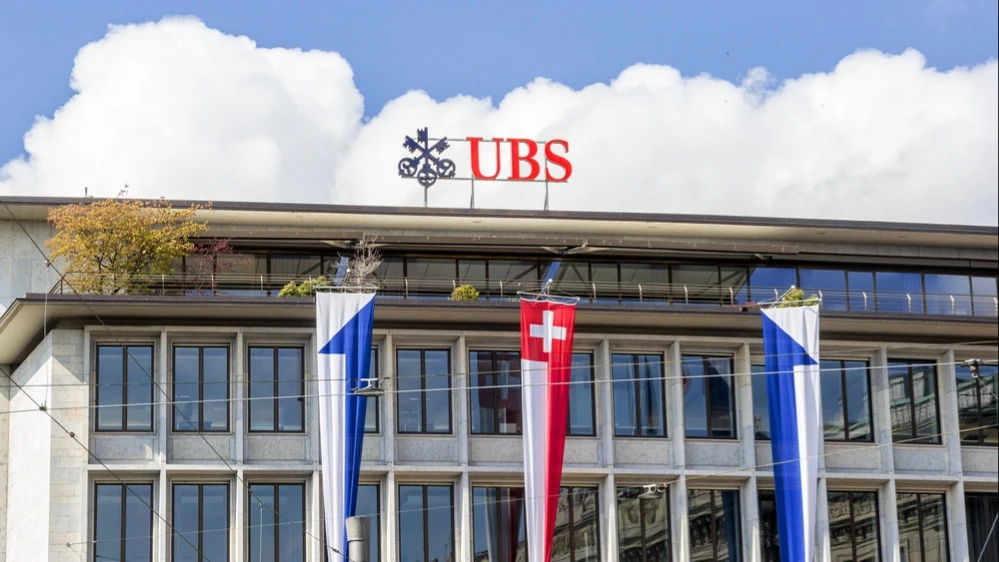UBS advised not to chase the rally, but to move into protective assets
Major economic changes "put the market in a tightrope walker's position," wrote analysts at a Swiss bank

Analysts at UBS point to a number of signals that say the US economy is in "slowdown mode". And the stock market, in their opinion, remains vulnerable to bad news after too strong growth - it has confidently recovered from April losses, despite the continuing threats of duties, geopolitical conflicts and serious risks to the economy. The Swiss investment bank recommends not to hope for a further rally, but to increase the share of protective assets in the portfolio for the summer.
What worries UBS
The U.S. economy is in "slowdown mode," according to a team of UBS strategists led by Sean Simonds. This is indicated by a combination of signals, they note, but admit: "So far this downward turn is so weak that we are not sure whether it is really a reversal or not". That said, any further deterioration in the economy would hit the stock market, which has become vulnerable to negative news after rising sharply from April lows, according to a UBS note that is cited MarketWatch.
Investors have once again increased long positions in futures, and risk premiums have been squeezed to the limit, analysts describe the state of the market. "As tactical growth drivers lose strength, the effects of tectonic economic changes (duties, deregulation, budget and more) put the market in the position of a tightrope walker balancing over a catalyst-laden summer," the Swiss bank analysts wrote.
UBS recalls that Wall Street analysts forecast average revenue growth for the S&P 500 Index in 2025 of 5% and earnings per share (EPS) growth of about 10%. "We expect these estimates to decline for the rest of the year amid weak economic statistics," the bank said in a note. Meanwhile, much of the expected increase in total earnings is due to the projected 17% EPS growth at the "Magnificent Seven" companies. And this "indicator has not been revised downward recently, unlike the rest of the market," the analysts remind.
Another cause for concern is the overvaluation of equities. Although the stability of the AI sector so far allows to justify this, the bank notes.
At the same time, UBS expects that share buybacks and continuous injections from global pension funds will support the stock market and mitigate the effect of sell-offs in case of a worsening economic situation.
What the bank recommends
According to UBS, the current market situation suggests that one should not chase the rally, but should increase the share of protective assets in the portfolio for the summer period.
That said, the bank notes that "it's too early to go against the trend in technology and artificial intelligence." Companies such as data center energy providers and software makers have seen earnings revisions for the better, and that's enough to ease concerns about overvaluation and overheated positions, UBS analysts explain. Their favorites include semiconductor company Broadcom, cybersecurity companies Qualys and Zscaler, and storage solutions maker Pure Storage, MarketWatch writes.
The bank names the consumer sector as a risk zone: housing construction, personal goods, personal and durable goods, retail and auto industry. Shares of such companies, according to UBS, remain vulnerable and may show further decline if macro data continue to deteriorate. Among the least attractive stocks are off-road equipment manufacturer Polaris, retailers American Eagle and Deckers Outdoor.
What other analysts are saying
- Some analysts expect the key to the S&P 500 hitting new all-time highs will be semiconductor companies, which led the rally after selling off earlier this year, wrote CNBC. In particular, Freedom Capital Markets chief global strategist Jay Woods said he's keeping a particularly close eye on a possible close above $150 for Nvidia shares. The analyst remains "in the long-term bull market camp" and expects the S&P 500 Index could reach 6,500-6,600 points by the end of the year, about 10 percent above current levels. "It's amazing to see us breaking through this wall of fear despite concerns about duties and now war as well," he said. .
- Retail investors are starting to move away from large AI players like Nvidia and are seeking access to the sector through smaller companies, according to an analysis of trading activity by Vanda Research, its quoted MarketWatch. According to the data, buying by semiconductor and software giants has declined, while interest in small-cap players is growing. This reflects "unabated interest (...) in related AI topics - such as power infrastructure for data centers, quantum computing and other related areas," Marco Iacchini, senior vice president of research at Vanda Research, told MarketWatch.
- UBS is not the only one to note investors' growing concern over signs of weakness in the economy. According to Stan Shipley of Evercore ISI, a flood of hard data was released last week - from retail sales and jobless claims to industrial production and developer sentiment. JPMorgan economist Nora Sentivania agrees: May's statistics confirm signals that "the momentum in the economy seen at the start of the year has begun to fade." In her opinion, the rise in import prices suggests that the impact of duties is already being felt domestically;
